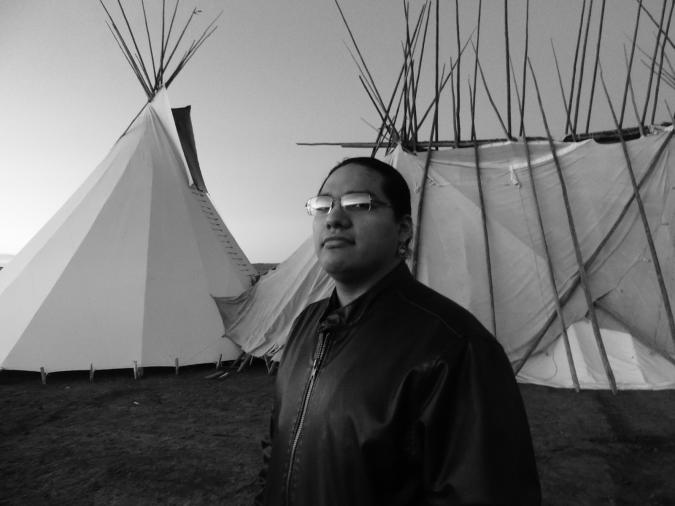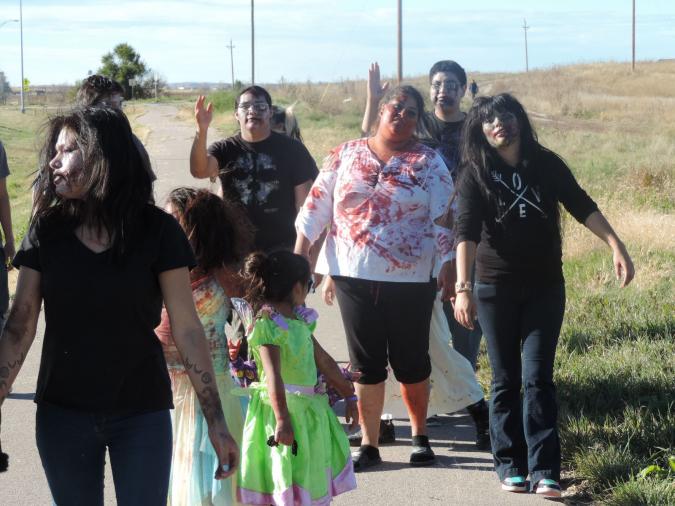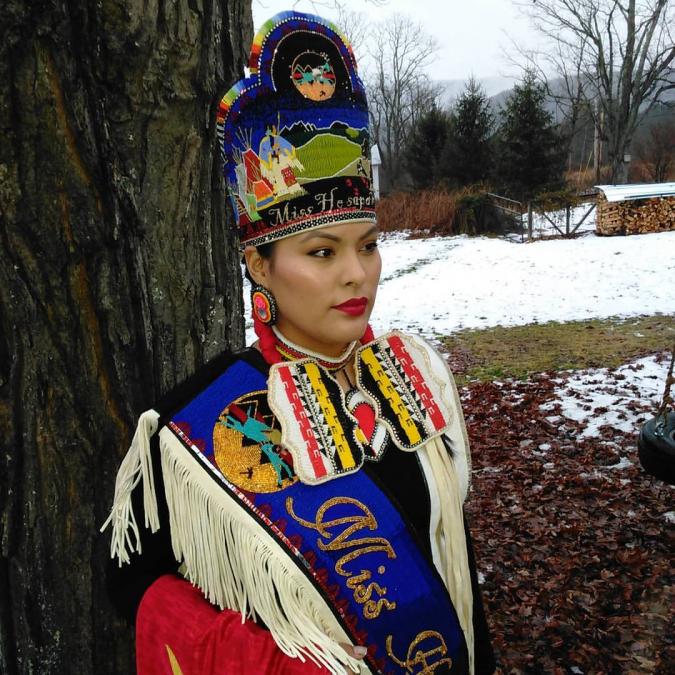Awesome Project: Wa’na Wanhi, “I am here.”
Published August 05, 2019
Davidica Little Spotted Horse is clear-eyed about the challenges that her community on the Pine Ridge Reservation faces.
“Our county is the second poorest county in the United States. We have an 80% unemployment rate here, and I can honestly tell you that if you went into any other town and 80% of people lost their jobs, it would mean chaos,” Davidica, a member of the Oglala Lakota, said. “Our reservation is something like two million acres in size, so it’s a really big reservation, but we don’t have very many resources like gas stations or stores.”
Those challenges often hit young people the hardest—the community endures a teen suicide rate a whopping four times higher than the national average. But, she says, “I totally know that our people and our kids are super resilient and smart. They have hope. We all have an amazing love for the reservation, and for our territory and for our people. Most of the kids here don’t want to leave. They want to raise their children here, because what we do have is a thriving culture, tradition, family ties, the connections that make community.”
So when her youngest daughter, Darien, came to her with an idea to create a space for young people to come together through activities, and help support mental health, she jumped on the idea. “At the time, she was in high school and was saying that the few programs available for young people really weren’t for everyone,” Davidica said. “There were athletic programs, but Darien was more artistic, and didn’t see a lot of things for herself. So she and about six of them in high school were talking about doing something for the creative kids, and I told her I could help them get a place to have meetings and offer mentorship.”

Together, they started the Wa’na Wanhi Lakota Youth Program. The idea was not just to offer activities, but also to give kids an opportunity to be leaders. “If they can get involved with something and feel a sense of accomplishment, see something through to the end, it would make a big difference. I think that’s the most important thing, to help build self-esteem,” Davidica said.
In a way, they were carrying on a tradition of communal activities that older generations had once led, but that Davidica said had fallen a bit on the wayside. “When I was younger, the older generation above me would do monthly activities in the community, like a dance or a feast, but a lot of them passed away and the next generation, my generation, were too busy trying to balance the outside world and the inside world. So Darien talked about bringing that back, but for younger people being able to do it,” she said.
So the group put up flyers inviting others interested in planning communal activities, and gathered a group of 30 young people. Davidica and other adults helped mentored them, guiding them through all the nitty gritty of organizing big events, but the youth ultimately led the way.

They organized a zombie walk for halloween, passed out donated meals for the holidays, and planted seedlings for a community garden, and brought the community together. “All of the community came out for the zombie walk and donated prizes and things like that. They were really surprised that the kids were the ones who created it and came up with all the games and the little path,” Davidica said. “Even the officers came and made sure the roads were clear so they could walk on the roads. It was just really really awesome.”
It’s pretty clear that the community thinks their projects are awesome, too. “Our TAP office, where folks have meetings and things like that, let us use their facility there anytime we wanted to,” Davidica said. “We also have a college center here, and they were like, ‘Yeah, you can print off the flyers here.’ Anything that we do, the community has come forward and pitched in, and parents especially have been super encouraging, coming out to our events and getting involved.”
Their latest project was to distribute donated goods to folks in the community. “A group came forward and said that they had collected a whole bunch of donations, which were like basic need donations, like toiletries, diapers, and formula, things like that,” Davidica said. “To the outside world, you can’t just go grab that, but it’s more challenging here”
The donations came from a community in California, so the youth group had to figure out how to get them across the country to South Dakota. They’d need money for gas and to rent two trucks to do so, and they’d need to think a bit bigger in terms of cash.
“This was the first time we’d ever fundraised like this for anything. Our youth group, usually we just do a local fundraiser, you know, like pancake sales, Indian taco sales, those types of things, ” she said.

So a friend of Davidica’s, who helped crowdfund with ioby for the Black Hills Unity Concert—that Davidica also played a role in—suggested crowdfunding with ioby again. “I looked into it and sat down with someone from ioby who explained it all, and to me it was a good fit. It was a great fit because you very rarely find crowdfunding sites that seem to really care about the project, and ioby did,” Davidica said.
They launched an ioby campaign to reach out to the folks they knew to give to bring the donations to the reservation, ultimately raising $1,050.
To Davidica, though, the project is so much more than the amount raised, or an event standing on its own. It’s about investing in young people, and planting the seeds of hope. Ultimately, they’d like to work towards building an all-ages community center where folks can come together for activities and access resources. “We’re doing little projects already, like starting community gardens, pushing our cultural stuff and trying to reach out to different kids who want to dance powwow, but on a larger scale we really need a space for people, for kids to be able to do things and come together.”
Even as they work toward it, it’s clear that Davidica and the Wa’na Wanhi Youth Project have made waves in the community, and among the youth that need it most. “Wa’na Wanhi is a Lakota word, and it means ‘I am here,’ ‘I exist.’ About half the kids in the program are kids who have attempted suicide,” Davidica said. “Being able to say that they’re here now, that they want to do something with this chance, was powerful. Our language is very deep, so making a statement like that is really saying that you have a belief in yourself, and that’s really, really important for these kids.”
Have an idea to strengthen your own community? We want to help! Let us know what your great idea is.
